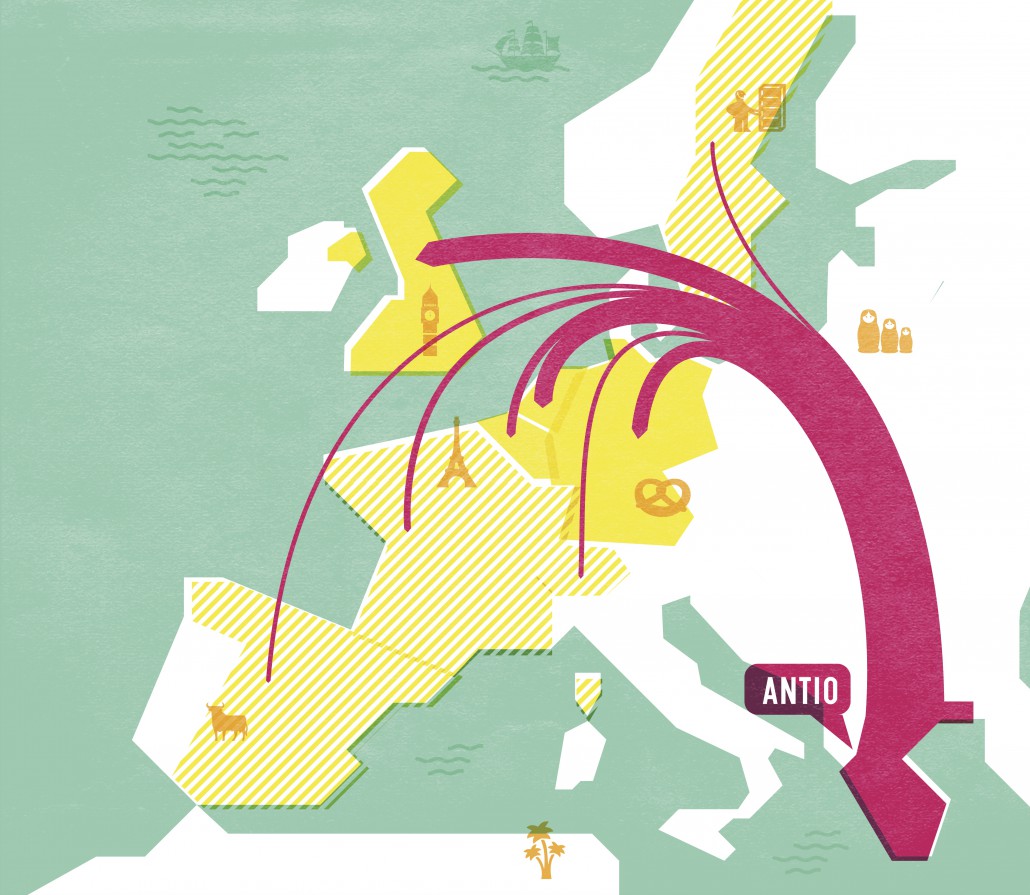Share this story
TIME TO READ: ABOUT 5 MINUTES
When Anna migrated from Greece to Germany in 2007, she already had a master’s degree in Biology. “Crisis had hit science in Greece long before hitting the economy,” Anna says when asked why she chose to leave. She wanted to do her PhD but the economic uncertainty in Greece lead her abroad. She had a hard time financially during the six years of her studies so she decided to leave. But that wasn’t the only reason.
“I think it’s really good, for a scientist that is, to work in a well-known university and get in touch with other scientists,” Anna says. “Germany offered the best solution, especially because in my science field a PhD is combined with a salary and there’s no tuition fee.” After she completed her PhD in Dresden she continued with post-doctorate research. Now she lives in Berlin and works for a big company.
Coming to Germany wasn’t difficult for Anna. “I came here just before the Greek crisis and being a scientist on a PhD, I was welcomed.” She was able to open a bank account and look for a house, something that would have been difficult otherwise. “I didn’t experience the prejudice of ‚being the Greek that won’t pay the rent‘. That came some years later.”
According to Anna that prejudice first appeared when the Greek economic crisis became news. “When the crisis begun, I noticed a change in people’s reactions. Not among friends or colleagues, but from random people you meet in the street or on the bus,” Anna says. “You wouldn’t hear a good word if you said you are from Greece.” According to Anna, the way the German media presented the situation played a big part in that.
“You were persuaded that ‚Greeks ate with two spoons‘ and now, when they need help, the German people have to pay.” Anna remembers an incident that happened in 2011, when she and a friend walked their dogs. “We met a lady that was also with her dog in the park and started chatting. She asked us where we were from and after we said Greece she answered: ‚Oh! I’m sorry; I don’t have money to give you right now.‘ It was rather shocking.”
The economic crisis hit Anna’s family hard. After her mother and sister lost their jobs in Athens, migration to Germany seemed like the only solution. So in 2012 they followed her. With Anna already being an established professional, their adjustment in the foreign country was easier. “For my family, things were easier than with other migrants at the time. With my warranty they were able to find a house. Now they both work and I think they’re happy.”
Anna feels homesick; she admits that she misses Athens, the people, everyday life in Greece, her friends. “I miss our long coffees and talks. I have the feeling that Greeks are more political. I miss our sense of humor.” She knows though that it’s difficult to return given the current socioeconomic situation. Anna says that she likes the security of a good job, the easiness of the life in a beautiful city and the stability the German state has to offer.
“Germans are human. It’s just that their state offers the protection that we never had in Greece.” But she also sees the difficulties. “If I won’t make it back to Athens, I hope to continue living in Berlin,” Anna says. But this depends on her job. “Working conditions change here as well. Employment contracts are not for an unlimited period of time. I don’t know where I’ll be five years from now.”
Interested in more Stories?
Become a Member
You’ve got information for us?
Questionnaire
The project is still collecting stories in collaboration with CORRECT!V with the goal of strengthening the dataset and getting a better picture of the Generation E. The idea is to tell the migrants stories both in the countries they are from and in those they moved to. The project wants to give a look into a new European reality. You can read the form in six different languages on generatione.eu.
Become a member
Steal our Story
Help yourself! CORRECT!V is a non-profit newsroom. We want to uncover wrongdoing to change society for the better. To achieve this goal, we need as many people as possible to read our stories. Therefore we are happy if you make use of our stories by taking, republishing or sharing them. It doesn’t matter if you’re a local blog, an online-platform, a newspaper or a radio station: take it, for free. There is only one condition: We want you to notify us at info@correctiv.org. That’s important for us and our supporters. If you have a question, don’t hesitate to contact us via E-Mail. Thanks!
Do you want to use our map above for your print product or your web page? Feel free to download the graphic for every country here. There you can find as well the iFrame codes (German+English), if you want to embed it.


